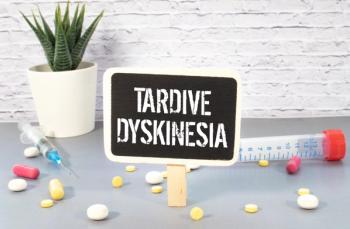
Researchers Announce Positive Efficacy Results for Long-Acting Subcutaneous Olanzapine Injection
The drug, TEV-749, demonstrated statistically significant and clinically meaningful efficacy results.
TEV-‘749, an investigational, once-monthly subcutaneous long-acting injection of antipsychotic medication olanzapine, met the primary efficacy endpoints in a phase 3 clinical trial, suggesting that this formulation can be an effective treatment for
SOLARIS (
During the first 8 weeks of the study (period 1), a total of 675 patients were randomly assigned 1:1:1:1 to receive either once-monthly subcutaneous TEV-749 at a low, medium, or high dose or placebo. The drug met its primary efficacy endpoint across all 3 treatment groups; the mean differences in changes in the Positive and Negative Syndrome Scale (PANSS) score from baseline to week 8 were -9.71, -11.27, and -9.71 points, for the high, medium, and low dose groups, respectively, vs placebo. These differences were, according to researchers, both clinically meaningful and statistically significant (adjusted P values, <.001 for each comparison).
Results of key secondary endpoints—Clinical Global Impressions – schizophrenia and Personal and Social Performance Scale— total scores were also statistically significant.
TEV-749 utilizes SteadyTeq copolymer technology that provides a controlled and steady release of olanzapine. Olanzapine is the most prescribed second generation antipsychotic for schizophrenia in the United States.
“These encouraging results from the efficacy portion of our phase 3 SOLARIS trial demonstrate the potential of TEV-749 to be an effective long-acting
Current estimates suggest that there are 3.7 million Americans—1.8% of the adult population—diagnosed with schizophrenia.2 The disease is chronic, progressive, and severely debilitating. There are no current long-acting olanzapine treatment options available for schizophrenia that are not associated with a risk for post-injection delirium/sedation syndrome (PDSS). To date, no cases of PDSS have been reported in the SOLARIS trial; the drug has been administered to approximately 80% of the target injection number.
“The data reinforce the potential of TEV-749 as a subcutaneous long-acting injectable by using a proven molecule with an established, long-acting delivery system,” said Cristoph Correll, MD, professor of psychiatry at the Zucker School of Medicine in Hempstead, New York, and a coordinating investigator on the SOLARIS study. “Most patients with schizophrenia will experience 1 or more relapses throughout their treatment journeys, so I very much welcome the development of new and innovative long-acting treatment options that may better fit into their lives.”
Teva and Medincell intend to present additional efficacy and safety findings at a medical meeting later in 2024.
Long-term safety and PDSS incidences are being evaluated in an open-label arm of the study (Period 2). This period will last for 48 weeks and will include patients who completed Period 1. These patients will be randomly assigned and equally allocated to 1 of 3 treatment groups. An ongoing objective of this arm of the study is an evaluation of the safety and tolerability of TEV-749 in this patient population.
A top-line readout of safety data is expected during the second half of 2024.
READ MORE:
References
1. Teva and Medincell announce positive phase 3 efficacy results from SOLARIS trial evaluating TEV-‘749 (olanzapine) as a once-monthly subcutaneous long-acting injectable in adults with schizophrenia. News release. Teva Pharmaceuticals. May 8, 2024. Accessed May 8, 2024. https://ir.tevapharm.com/news-and-events/press-releases/press-release-details/2024/Teva-and-Medincell-Announce-Positive-Phase-3-Efficacy-Results-from-SOLARIS-Trial-Evaluating-TEV-749-olanzapine-as-a-Once-Monthly-Subcutaneous-Long-Acting-Injectable-in-Adults-with-Schizophrenia/default.aspx
2. New study finds at least twice as many US adults experience schizophrenia spectrum disorders than previously thought. News release. RTI International. June 26, 2023. Accessed May 8, 2024. https://www.rti.org/news/new-study-finds-least-twice-many-us-adults-experience-schizophrenia-spectrum-disorders
Newsletter
Pharmacy practice is always changing. Stay ahead of the curve with the Drug Topics newsletter and get the latest drug information, industry trends, and patient care tips.























